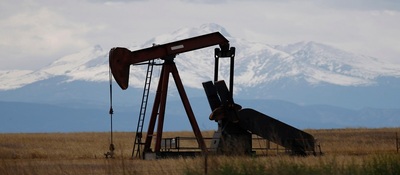
Technical Report Writing in the Maritime and Offshore Industry
INTRODUCTION
Technical Report Writing (T.R.W) should have a purpose; it is a technique and acquired skill. To achieve your purpose you have to make sure the intended reader looks at and understands what you have written, and why you have written it. You have to make an impression by style and presentation on the ‘target’, and that any person who accesses it understands what you have written. Effective writing is writing that achieves the purpose of the writer.
Orbit Horizone’s Technical Report Writing in the Maritime and Offshore Industries training course acquaints the participants with the technical report writing skills and explains how to utilize them in the maritime, offshore, Oil/Gas and port industry sectors. This comprehensive 5-day training course looks at practical and proven techniques in project delivery written communications, and uncovers the keys to successful technical report writing.
Delegates attending Orbit Horizone’s Technical Report Writing in the Maritime and Offshore Industries training course will develop the following competencies:
- Ensure the thoughts of the writer become the desired actions of the reader
- Remove the misunderstandings of complex and technical language constraints in the Maritime, Offshore, Oil / Gas, Petrochemical and Port industries
- Provide techniques that master effective written communications
- Advanced skills and processes to successfully submit effective and efficient technical reports
WHO SHOULD ATTEND?
If you are engaged in the maritime, oil/gas industry or are a project manager or planning to become one, then it is important for you to learn the fundamentals of Technical Report Writing. Orbit Horizone’s Technical Report Writing in the Maritime and Offshore Industries training course is designed for those with little, or a basic level of understanding in these techniques.
This Orbit Horizone training course is tailored for all personnel who are exposed to, involved in or responsible for the successful delivery of maritime and offshore projects, but will greatly benefit:
- Non-Technical Professionals
- Project Engineers & Planners
- Project Management Professionals
- Cost Estimators
- Asset Managers
- Quality Assurance Professionals
- Contracts & Procurement Professionals
- Discipline Engineers
- Technical Assistants
PROGRAMME OBJECTIVES
Orbit Horizone’s Technical Report Writing in the Maritime and Offshore Industries training course is designed to provide participants with the skills and knowledge to successfully deliver concise technical reports. Participants will:
- Develop an understanding of communication constraints and demands when report writing
- Learn to optimize your report writing ability
- Recognize the keys to successful technical writing and drafting of reports
- Understand how to apply proven techniques
- Learn to identify and manage the risks associated with poor writing skills and abilities
TRAINING METHODOLOGY
Orbit Horizone’s Technical Report Writing in the Maritime and Offshore Industries training course will incorporate both theory and skill training components, utilizing both traditional lectures, as well as hands-on exercises, group discussions and case studies. Led by a highly experienced and skilled Offshore Oil and Gas Project Manager, and a world leading specialist in Marine Engineering, this course provides delegates an in-depth understanding of approaches to Technical Report Writing in the maritime, oil/gas, offshore and Port Infrastructure engineering industry.
PROGRAMME SUMMARY
Orbit Horizone’s Technical Report Writing in the Maritime and Offshore Industries training course demonstrates the current ineffectiveness and cost to businesses that do not equip themselves with the necessary and effective Technical Report Writing skills and procedures and project management resources. Challenging Tutored Marked Assignments, and in-depth Case Studies are presented to delegates for the duration. The trainer uses factual case studies and exercises along the way to cement participants’ newly acquired skills, and helps them apply them to real situations. Equally as important, a look at the mind-set of project managers, and marine engineers is given through the discussions; thus giving participants an additional boost in anticipating potential problems and correcting them beforehand.
PROGRAM OUTLINE
Day 1 : The Basics of Technical Report Writing
- The need for and the purpose of effective report writing
- Types of writing
- What is expected of you?
- Edit then Edit again
- Common elements – content, clarity, style and language
- The offshore Oil / Gas and Maritime Industry – its special needs
- Preparation, audience general format
- Aims, objectives, style
- Information handling techniques – storage and reproduction
- Appearance
- Purpose and objective
- Contracts
- Format
- Drafting and Planning
- Purpose of research and accuracy
- The human elements
- First, second and third person
- What is passive voice?
- Organizing information
- Time management
Day 2 : Structure and Style
- Contents, introduction, executive summary, background, procedures, findings, sub headings conclusion, recommendations, reference, bibliography, appendixes
- Layout and logic
- Font
- Type
- Line spacing
- Abstracts
- Narrative
- Margins
- Numbers
- Tables and figures
- Acknowledgments
- Abbreviations
- Keep the word count down
- Formal language
- Overworked words
- ‘Wooley’ qualifiers
- Emotional and ‘leading’ words
- Tenses
- Punctuation and common mistakes
- Numbering and Headings
- Illustrations and diagrams
- Critical thinking
Day 3 : Elements of Style
- Word choice, Accuracy and Courtesy
- Sentence structure
- Understanding jargon
- Be Clear. Be Concise. Be correct
- How to engage the reader
- Revision
- Parallel Rules
- ‘Wordines’
- Consistency
- Copy + Paste = PLAGIARISM
- ‘TURNITIN’ Detection
- References, Journals and Papers
- Key Features of a Good Technical Report and how to write it
- Quick and easy form of communication
- Design for selective reading
- Use figures and diagrams to convey data
- Exercise – Full Review and Case Studies of Technical Reports from Harvard (U.K) and M.I.T Universities (U.S.A)
Day 4 : Report Writing
- Incident reports
- Survey and Technical papers
- Engineering Reports
- Investigation reports
- Expert Reports
- Site Visit Report
- Updates
- Laboratory Report
- Discussion Reports
- Results Report
- Observation Reports
- Conference Reports
- Power Points
- Experimental Reports
- Assessment and condition reports
Day 5 : IT and Deciding to Invest in IT Equipment
- Computer Hardware and Software
- Document Security
- Fax and Emails
- The World Wide Web
- Glossary of IT Terms
Expert Witness Testimony and Reports
- Disclosure of reports and communications
- Civil and criminal procedures for report writers
- Exercise – Submission of a full Technical Report from Delegates and Assessment of Technical Reports
| رقم الدورة | التاريخ | تاريخ الانتهاء | عدد الأيام | المكان | الطلبات |
|---|




